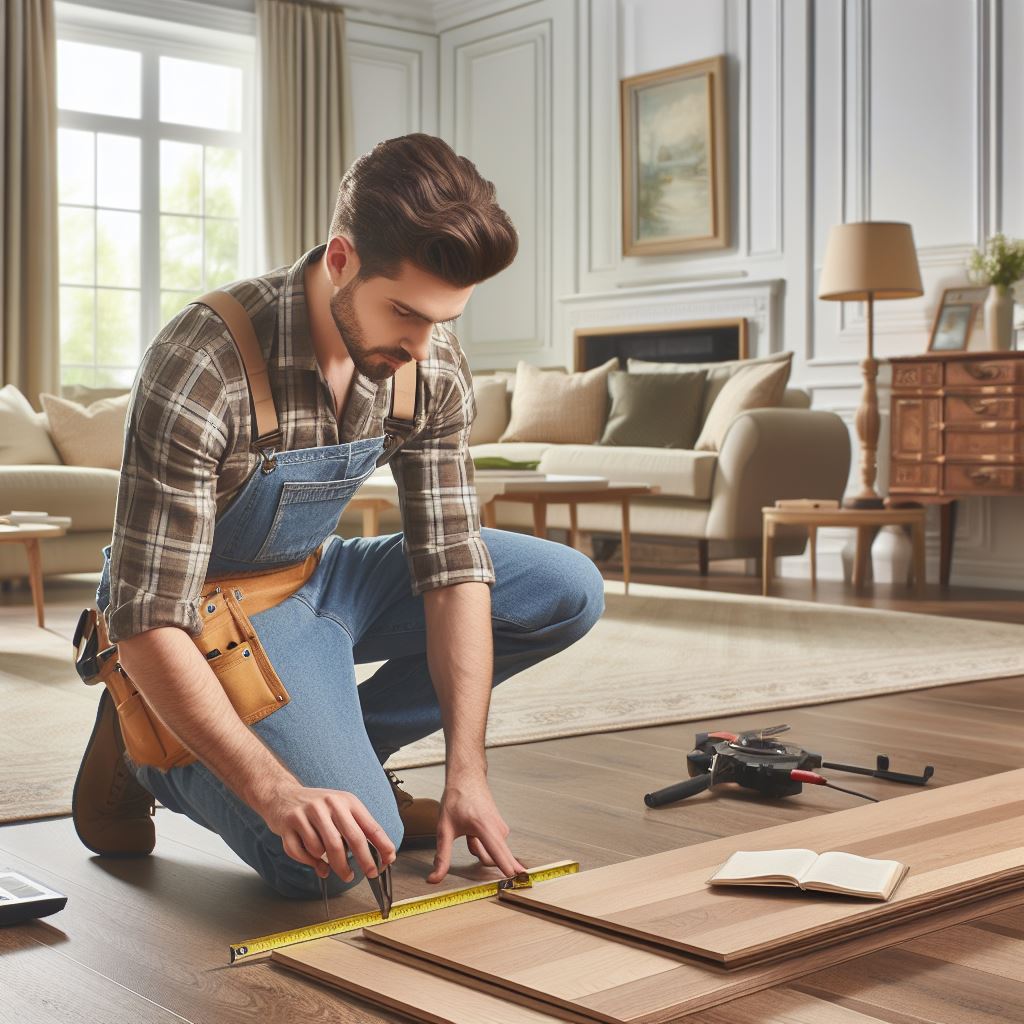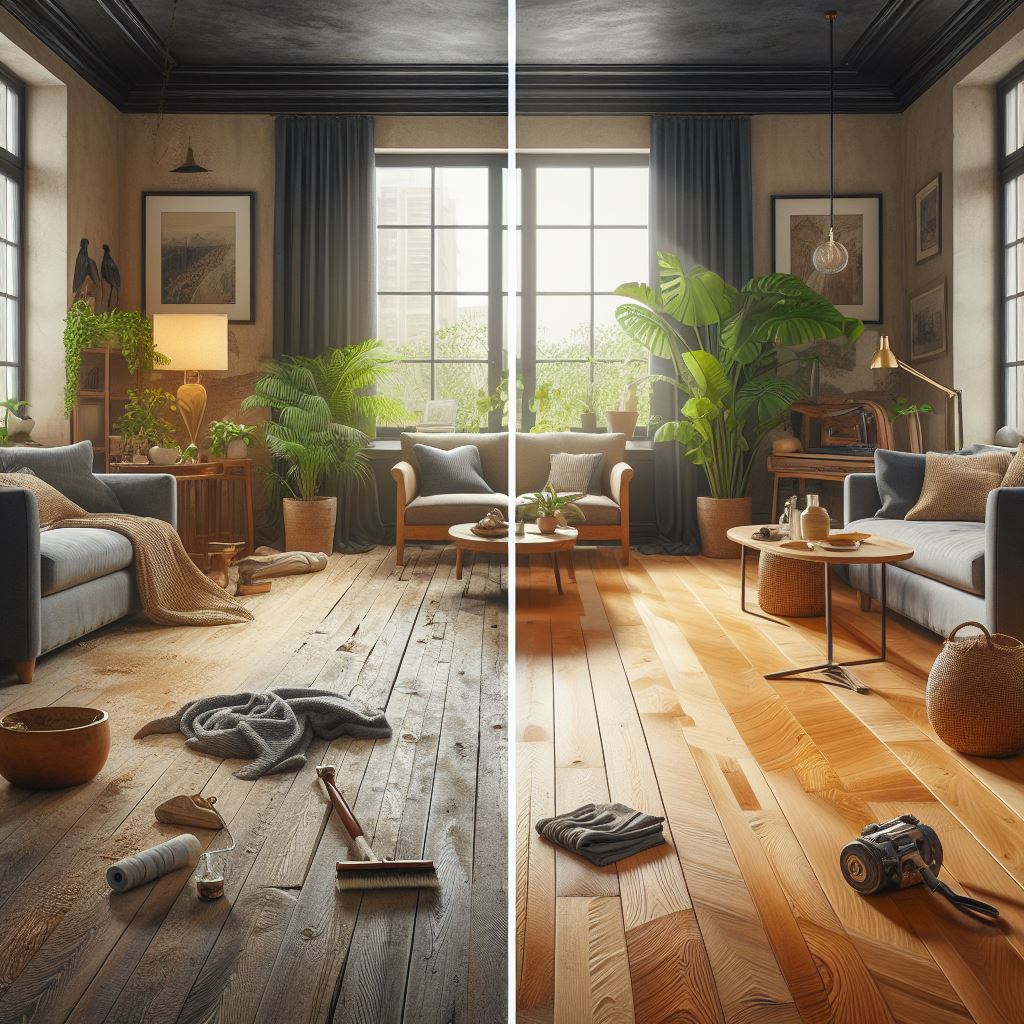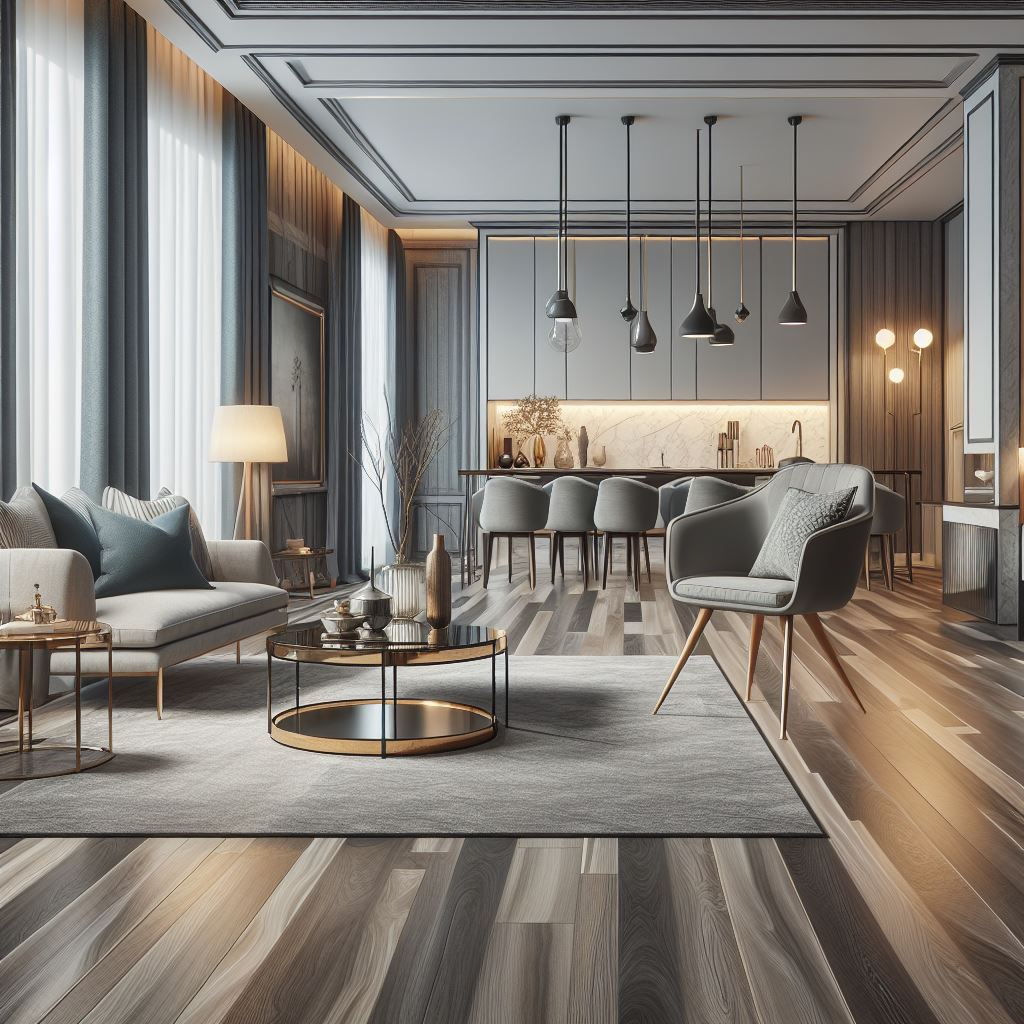Understanding the cost of engineered wood flooring is essential for homeowners and renovators who desire the timeless appeal of wood floors without the expense of solid hardwood. Engineered wood flooring is a cost-effective and durable alternative, combining a real wood veneer with multiple layers of supportive core material. Engineered wood flooring price per square foot can vary widely, influenced by the thickness of the top wood layer, the quality of the core layers, and the species of the wood itself.
The initial investment in engineered wood flooring pays dividends in the long run, as it enhances the beauty and value of any Dallas Fortworth home. For those interested in exploring the various options and price points, Paradise Spaces offers a comprehensive range of engineered wood solutions tailored to fit diverse styles and budgets. Request a free estimate or email us to discover how we can transform your space with the elegance and durability of engineered wood flooring.
As we delve into the nuances of engineered wood flooring costs, it's important to consider not only the purchase price but also the installation expenses, which can affect the overall budget. Stay with us as we break down the factors contributing to the engineered wood flooring price per square foot and how to maximize your investment for a stunning and long-lasting floor.
Factors Influencing Engineered Wood Flooring Prices
The engineered wood flooring price per square foot is contingent upon multiple factors that range from the physical characteristics of the flooring to the logistics of sourcing and installation. One of the primary considerations is the veneer thickness, which determines the floor's resilience to wear and potential for refinishing. Thicker veneers offer longevity but come at a higher cost.
- The wood species used for the veneer significantly impacts the price. Exotic woods such as Brazilian cherry or mahogany are typically more expensive than domestic species like oak or maple.
- Grade and quality of the core layers play a crucial role in the flooring's stability and resistance to environmental changes. High-quality plywood cores, for instance, provide better support but increase the price point compared to fiberboard or softwood cores.
- The finishing options, including oil or polyurethane coatings, contribute to the flooring's aesthetics and protection, influencing the overall cost.
- Additional features such as hand-scraped textures or custom staining can also elevate the price, reflecting the craftsmanship and customization involved.
- Lastly, the cost of installation is not to be overlooked. It can vary based on local labor rates, the complexity of the installation, and any preparatory work needed on the subfloor.
When selecting engineered wood flooring, it is crucial for homeowners to balance their budget with their desired aesthetic and performance characteristics. By understanding these factors, customers can make informed decisions that align with their financial and design goals, ensuring a satisfactory outcome for their flooring project.
Comparing Engineered vs. Solid Hardwood Flooring Costs

When weighing engineered wood flooring price per square foot against that of solid hardwood, several key distinctions come into play. Engineered wood is typically more cost-effective due to its construction. Comprising a plywood or fiberboard core topped with a hardwood veneer, engineered wood utilizes less expensive materials beneath the surface layer, which can lead to savings for the homeowner.
In contrast, solid hardwood floors are milled from a single piece of timber, making them a premium option with a higher price tag. The thicker, uniform wood allows for multiple refinishings over time, which can extend the floor's lifespan and justify the initial investment.
However, the installation costs of engineered wood are often lower, partly because it can be more versatile in terms of installation methods, including floating, stapling, or gluing down. The ability to install engineered wood over a variety of subfloor types, including concrete, also contributes to its cost efficiency. Solid hardwood typically requires a plywood subfloor and may necessitate additional labor for proper acclimatization and installation.
Furthermore, engineered wood's resistance to moisture and temperature fluctuations makes it suitable for a wider range of environments compared to solid hardwood, which is more susceptible to warping and buckling. This adaptability potentially reduces long-term maintenance costs associated with engineered wood flooring.
Ultimately, the choice between engineered and solid hardwood flooring will hinge on budget constraints, aesthetic preferences, the intended use of the space, and long-term considerations regarding durability and maintenance requirements.
Installation Costs for Engineered Wood Floors

The installation costs for engineered wood floors can vary widely, influenced by factors such as the complexity of the floor plan, the type of engineered wood selected, and the installation method. Typically, the cost to install engineered wood flooring ranges from $3 to $10 per square foot, including both materials and labor.
One of the more economical installation methods for engineered wood is the floating floor technique. This approach involves locking the planks together over an underlayment, which can often be executed without professional help, potentially saving on labor costs. Alternatively, gluing or stapling the planks to the subfloor provides a more permanent solution, but these methods usually require professional installation and thus, incur higher labor costs.
The choice of underlayment is also a cost factor. Basic foam underlayments are relatively inexpensive, while more advanced options that offer better soundproofing and moisture resistance can add to the overall cost.
Furthermore, additional expenses may arise from subfloor preparation, such as leveling or moisture-proofing, especially if installing over concrete. Removal of existing flooring and disposal fees, as well as the cost of transition strips, baseboards, or moldings, must also be considered in the project budget.
For accurate pricing tailored to specific needs, it's advisable for homeowners to consult with a professional installer. Factors such as local labor rates and the specific characteristics of the home will influence the final installation costs.
Maintaining Your Engineered Wood Flooring Investment

Maintaining your engineered wood flooring is critical to preserving its beauty and extending its lifespan. The durability of engineered wood makes it a favorable choice for many homeowners, but regular maintenance is key to ensuring it remains in pristine condition.
Regular cleaning with a soft bristle broom or a vacuum with a hardwood floor attachment can prevent scratching from dirt and grit. It's important to clean up spills immediately to avoid staining or damage to the layers of the flooring. Using a damp mop with a manufacturer-recommended cleaning solution can help maintain the finish without risking water damage. Homeowners should avoid using excessive water or steam mops, which can seep between the planks and cause warping or delamination.
Placing protective pads under furniture legs can prevent scratches and dents, and using area rugs in high-traffic zones can further protect the floor's surface. It's also advisable to keep pets' nails trimmed and to remove shoes that could damage the floor, such as high heels or cleats.
Over time, the top layer of the engineered wood floor may show signs of wear. Fortunately, one of the advantages of engineered wood is that it can be sanded and refinished, depending on the thickness of the veneer. This process can refresh the appearance of the floor and extend its life, although it should be done by professionals to avoid damaging the flooring.
By following these simple maintenance steps, you can ensure that your engineered wood flooring investment remains a lasting and valuable feature of your home.
Where to Find Engineered Wood Flooring in Dallas Fortworth

Finding the perfect engineered wood flooring in Dallas Fortworth is made easy with the plethora of options available to homeowners. As a leader in the flooring industry, Paradise Spaces offers an extensive selection of engineered wood flooring to fit any design preference and budget.
Our showroom features a variety of styles, colors, and finishes, allowing customers to get a real feel for how the flooring will look in their own home. Knowledgeable staff are always on hand to provide expert advice on the best type of engineered wood flooring for your specific needs.
Aside from visiting our physical location, customers can also browse our online catalog or request a free estimate to start their flooring journey from the comfort of their own home. We understand that choosing the right flooring is a significant decision, and our team is dedicated to guiding you through every step of the process.
For those ready to enhance their living spaces with the beauty and durability of engineered wood flooring, Paradise Spaces is your go-to destination. With our commitment to quality and customer satisfaction, we ensure that every installation is performed with the utmost precision and care.
Explore our exceptional range and find the engineered wood flooring that speaks to your style. For more information or to request a free estimate, please email us at sales@paradise-spaces.com. Your dream floors are just an inquiry away!
